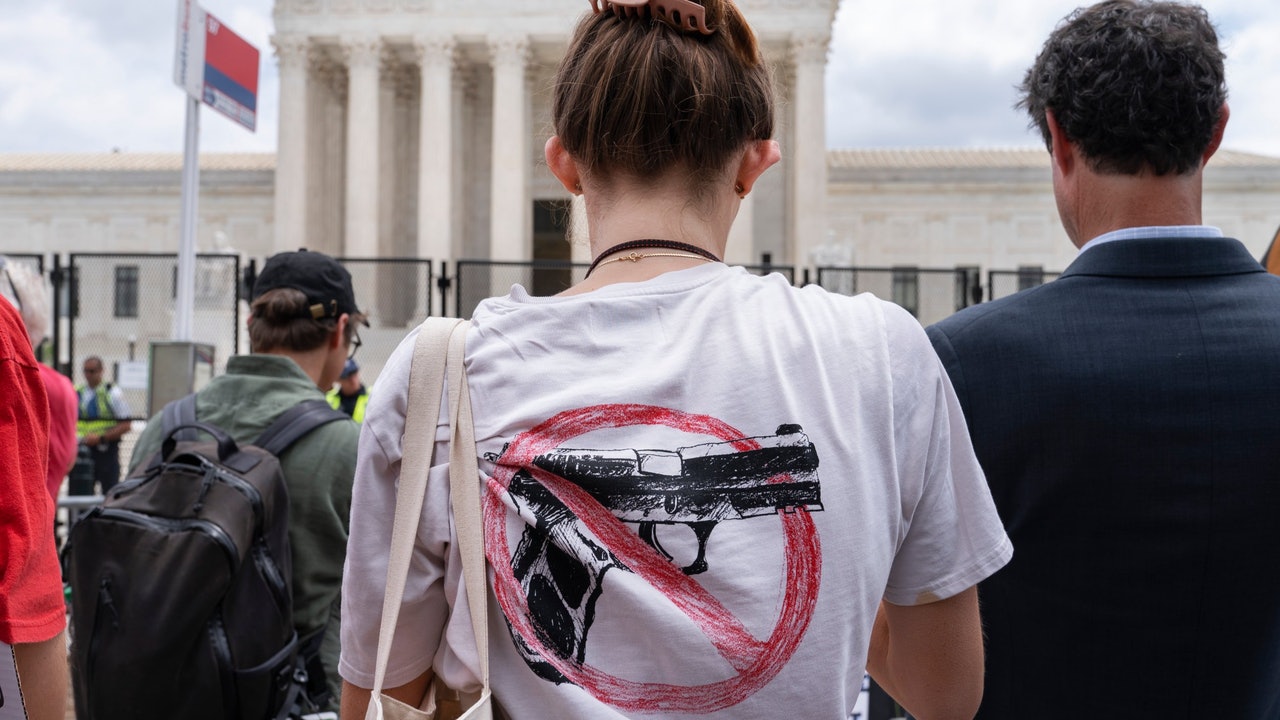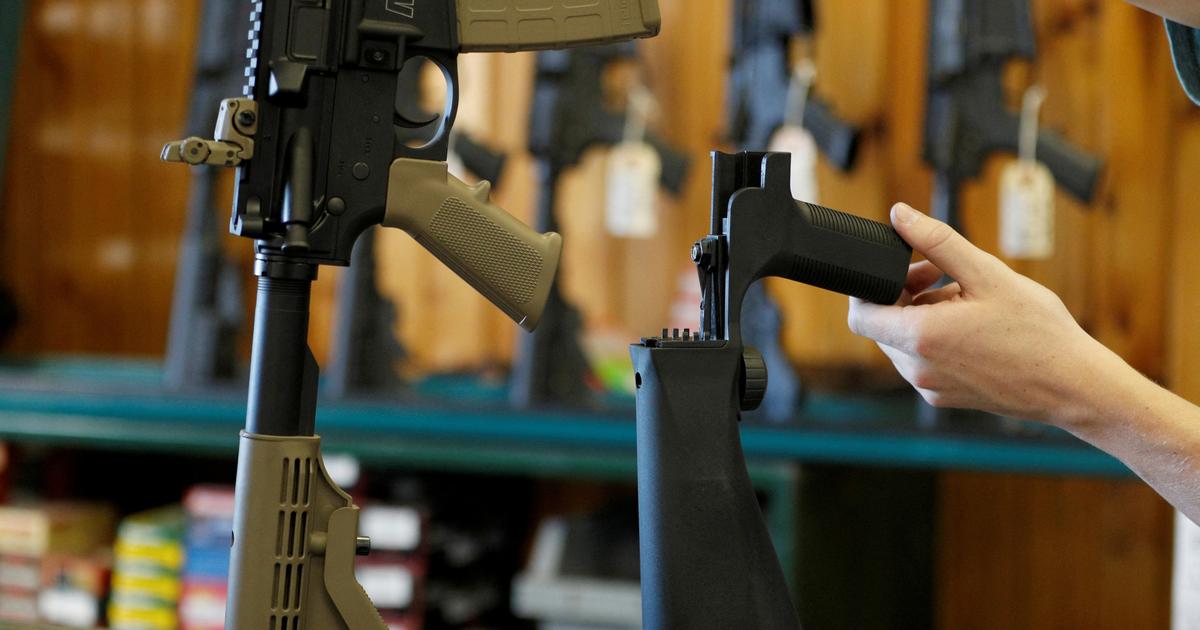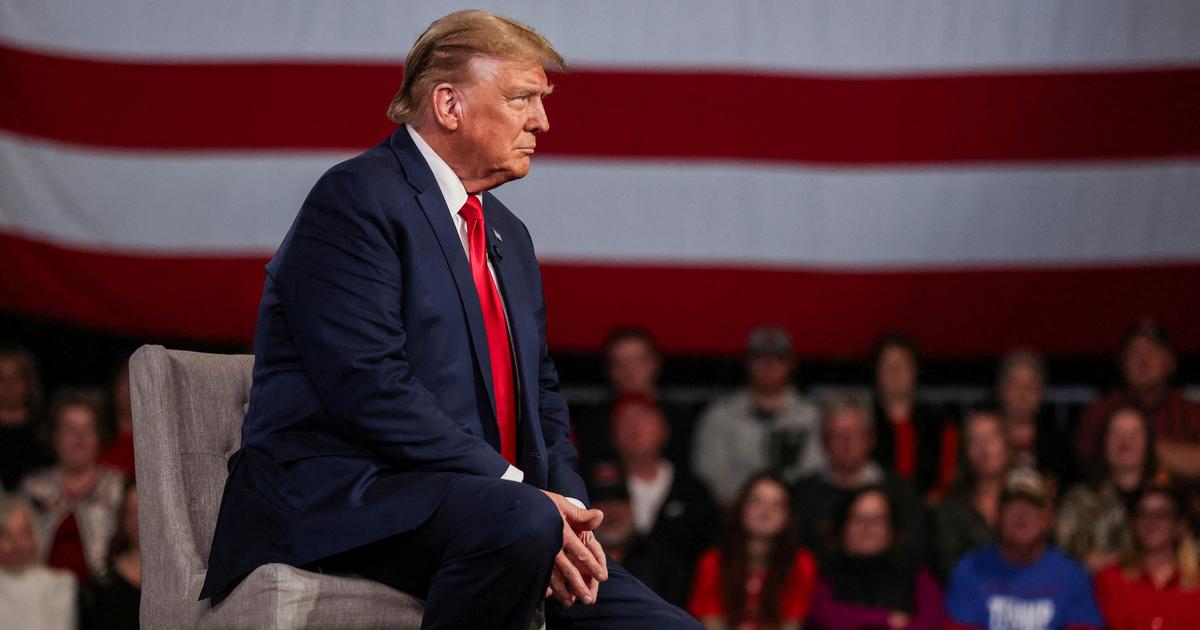Two important events related to gun rights in the United States occurred on June 23.
First, members of both parties in the Senate passed a gun control bill that has not been seen in 30 years. The law passed the House of Representatives two days later and was signed and implemented by Biden.
The moment the Senate Republican leader, Mitch McConnell, allegedly voted in favor, everyone in the room gasped in surprise.
The second is the Supreme Court decision in New York State Rifle & Pistol Association, Inc. v. Bruen, in which six conservative justices ruled New York State a The nearly 110-year-old concealed-carrying regulation violates the Second Amendment guarantee of gun ownership and is the most influential gun rights decision in more than a decade.
Putting the two things together, God seems to have tightened the barrel and loosened it on the same day.
The Brunn case involved New York State's licensing system for people to carry guns concealed in public places.
In order to legally carry a gun concealed, people must prove that they have special self-defense needs, such as the need to work in areas with particularly poor security, etc., and the right to carry a gun concealed cannot be obtained just by a simple sentence of self-defense.
Similar laws exist in Washington, D.C. and five other states, and the ruling will invalidate them.
For this ruling, the Supreme Court attempted to downplay its impact, pointing out that its decision does not affect the constitutionality of the licensing system for guns in 43 states across the United States.
The impact of this decision may not be serious, but the legal logic behind this decision seems to make most possible gun barrel legislation in the United States unconstitutional.
Gun rights are born?
The absolute right of the American people to own guns was not established until the "District of Columbia v. Heller" case in 2008.
The problem is the grammatical interpretation of the Second Amendment to the Constitution.
The full text of the amendment reads "A well regulated Militia, being necessary to the security of a free State, the right of the people to keep and bear Arms, shall not be infringed," which can be translated as "A well-disciplined militia, for a The security of free nations is essential; the right of the people to keep and bear arms shall not be violated.”
Does the "right to keep and bear arms" belong to the "people" or to a "well-disciplined militia"?
Demonstrations before the Supreme Court are expected to become the norm.
(AP)
The interpretation of the Heller case argues that the right to "bear arms" in this sentence belongs to the people, not just "a well-disciplined militia", so the right to gun has become a right that every American has.
However, the judgment in the Heller case also held that the inherent constitutional guarantee of the right to own a gun does not mean that the right to own a gun is unlimited. Examples include the ban on carrying guns in sensitive places such as schools and government buildings.
The controversy in the "Bruen case" is that New York State requires people to have special reasons for self-defense before they can carry guns concealed in public places. Is such gun rights control in line with constitutional restrictions?
Justices are going to be historians
Like the Supreme Court's legal justification for repealing the right to abortion, conservative justices have adopted a "text and history" approach to interpreting the Constitution.
From a negative point of view, if the Constitution does not expressly mention the guarantee of a certain right (such as the right to abortion), people have to look at the historical background in which various constitutional provisions came into effect, whether there is a "deep-rooted historical and Tradition", if not, there is no constitutional guarantee for this right.
From a positive point of view, if the constitution expressly guarantees a certain right (such as the right to own a gun), how much control space is there for this right, people have to look at the historical background when the provision takes effect. Without a strong tradition in history of a certain kind of regulation, such regulation is not constitutional.
Taking the "text and history" approach, Supreme Court justices become historians, looking to history to justify their legal views—unfortunately, justices are not historians.
Just outgoing liberal Justice Stephen Breyer wrote in his dissenting opinion: "This court's near-exclusionary historical reliance is not only unnecessary, but also highly impractical. This gives lower courts an unattainable The task...the courts are run by lawyers, not historians, after all.”
Texas Elementary School Shooting: There was a shooting at Uval Di Rob Elementary School in Texas, United States, on May 24, 2022.
The picture shows on June 8, 2022, an 11-year-old girl, Cerillo, testified to the House Oversight and Reform Committee through a video, during which she recalled the terrible circumstances of the shooting.
(AP)
This lack of professionalism in the judge's interpretation of history is reflected in a strange phenomenon in this judgment.
The majority opinion, written by conservative Justice Clarence Thomas, and the dissenting opinion, written by Breyer, cited many of the same historical cases, but the two received different interpretations of the historical tradition of gun barrels.
Moreover, the justices also seem to wear colored glasses to interpret whether the firearms or weapons control in history has practical significance.
For example, a 1328 law in England forbidding people to ride armed in fairs, Thomas believes that pistols only became popular in Europe in the 16th century, because the law has no reference value.
But the Supreme Court on June 30 remanded a lower court's decision upholding Maryland's ban on semi-automatic rifles -- yet, apparently, in 1791, when the Second Amendment was passed, semi-automatic rifles had not yet appeared.
With regard to gun control in a contemporary context, such as Texas' 1871 statute prohibiting people from carrying handguns without "reasonable cause" (which falls into the same category of gun barrels as New York's regulation), Thomas acknowledges that the Texas case does support New York. The state's special self-defense needs gun barrels, but claims the Texas case is a "special example" that does not constitute a legal tradition.
The problem is that some historians have already provided the Supreme Court with nearly 300 state gun barrels comparable to New York regulation from the mid-19th century to the early 20th century, while legal history papers have long documented the post-Civil War until the 19th century. Lately, more than half of the U.S. population lived in states with "special reasons for carrying guns."
Thomas turned a blind eye to these histories.
Even if the judges can "repair" history to correct the above possible wrong historical interpretations in the future, the "text and history" approach of conservative justices almost turns most of the potential barrels into unconstitutional.
Demonstrators outside the Supreme Court held up cards that read "Forcing children to be born and murdered in school" while protesting the court's revocation of abortion guarantees and the expansion of gun rights.
(AP)
The inevitable limitations of history
Thomas wrote in his majority opinion: "When a challenged regulation deals with a general social problem that has existed from the 18th century to the present, if there is no historically similar regulation dealing with the same problem, it This is evidence that the regulation being challenged does not comply with the Second Amendment.” Thomas also cited the historical failure to regulate “firearm violence in densely populated communities” as an example to demonstrate that banning handguns for this purpose is unconstitutional .
The funny thing is that in 1791, New York City, the largest city in the United States, had only 33,000 people, but today there are 8.38 million people in New York City.
Can the "dense population" of the two be compared?
Moreover, if we look at the gun control bill that Biden just signed into law through Thomas’s “text and history” approach, we will find that many of the controls may be unconstitutional.
The new law, for example, lists domestic violence records, including relationships between boyfriends and girlfriends, as grounds for prohibiting people from owning firearms.
The issue of domestic violence is generally a topic that has only received legal attention in recent decades, but it is a common social problem that has always existed in history. If someone is prohibited from owning a gun on the grounds of domestic violence records, it is obviously "unfounded in history." ".
Similarly, on the issue of abortion rights, the right to use contraceptive methods, the right to same-sex marriage, and the right to interracial marriage were not guaranteed by "deep-rooted history and tradition" in the United States in the 19th century, nor were these rights expressly written written into the constitution.
It is no wonder that after the abolition of abortion rights, people fear that the Supreme Court will eventually use the same "textual and historical" constitutional reading to overturn the guarantees of these rights.
By extending the "text and history" approach of conservative judges, not only is the gun barrel dead in the United States, but various basic human rights may also be gradually withdrawn, causing people who have lost constitutional protection to have to fight outside the system. , so that American society has since plunged into turmoil.
The Death of Abortion Rights in the U.S. Could Spark Another Wave of Civil Rights Movement?
|The agitation of the Supreme Court (1) The US Supreme Court ruled to reject the New York gun control law. New York said it would formulate new measures to deal with the American exception behind the Texas shooting case: Why is the proliferation of firearms always uncontrollable?
Sandy Hook School Shooting Nightmare Returns
│Behind the News






/cloudfront-eu-central-1.images.arcpublishing.com/prisa/OWZ46IC2URACHO3QA7VMH4RKLI.jpg)


/cloudfront-eu-central-1.images.arcpublishing.com/prisa/OV2VBR4SENF6HBYT4PL7REJMVU.jpg)